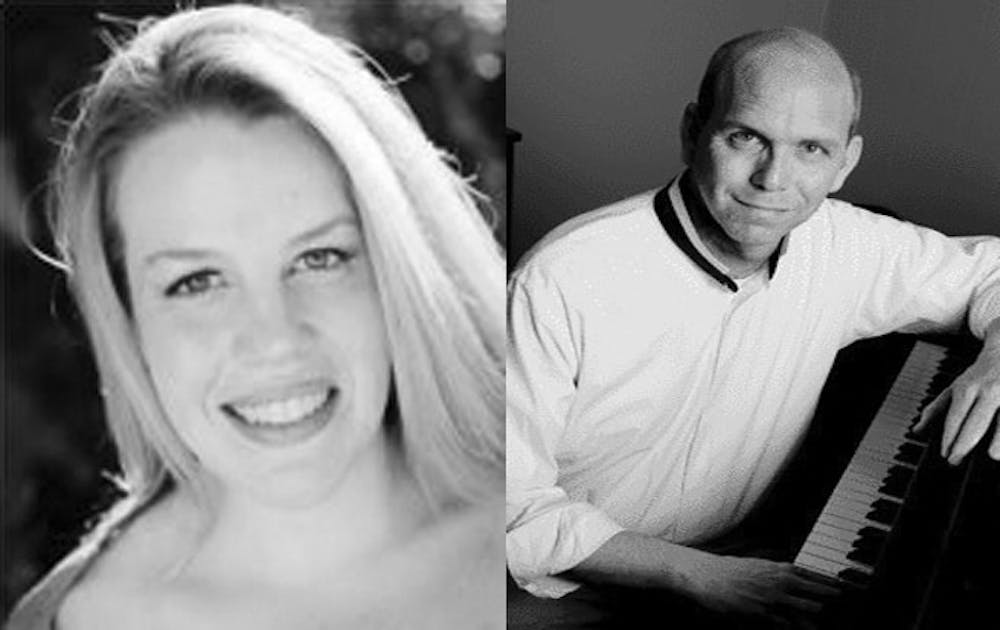When Orsino laments his unrequited passion for Countess Olivia in Twelfth Night, he offers the ultimate recipe for numbing heartbreak: “If music be the food of love, play on.” Today his words echo with artists of all types. It’s a rare occasion, however, when seemingly disconnected modes of performance—chamber music and theatre—share a stage.
In a performance that’s part staged reading and part recital, “Shakespeare: Music’s Muse” will showcase piano-voice duets (a.k.a art songs) either inspired by or written to accompany several of the master-poet’s plays. David Heid (piano) and Andrea Moore (soprano) will call upon works variously influenced by Hamlet, Othello, As You Like It and Twelfth Night. Back-to-back with Heid and Moore, undergraduate thespians Steven Li (’13) and Molly Forlines (’13) will perform selections from the motivating texts.
The performance, to be put on Friday, Feb. 8 in the Nelson Music Room, is unusual for many reasons. It includes an eclectic selection of works from various eras and composers: spanning works from Brahms to 20th century masters H.H.A. Beach and E. W. Korngold. The set also features a partial rendition of the closing number from “Kiss Me Kate,” Cole Porter’s musical version of The Taming of the Shrew, which will involve the whole four-person ensemble. While the set-list of “Music’s Muse” includes some incidental works which originally backed up performances of Shakespeare, much of what Heid and Moore will perform has never shared the concert space with live theater.
“What we want to do is fully wed art forms that are usually only related,” said Heid, who also teaches piano at Duke and plays as a staff accompanist. “People these days are trying different ways to prevent classical music besides the usual recital.”
“Music’s Muse” is another example of unexpected student-faculty interaction on equal terms. Heid said he gave the students free reign to select specific monologues, and Heid believes Li and Forlines will have had as much authority over the vision of the performance as the Triangle veterans. For the student actors, this isn’t their first go at experimental theater nor is it their first time performing Shakespeare. Both Li and Forlines starred in last fall’s Theater Studies show Women Beware Women, an edgy adaptation of Moliere’s classic by the same name, and they also played important roles in the fall showcase of Antic Shakespeare, an undergraduate theatre group dedicated to Shakespeare.
Forlines jumped on the opportunity to “flex her Shakespeare muscles” upon hearing of Heid and Moore’s project. For her, the chance to communicate with art song is proving to be an enriching intellectual partnership. She said that Heid and Moore’s expression of the music of Shakespeare’s poetry grants her an indirect understanding of the Bard’s verse.
Shakespeare’s poetry has always been musical. His syllables are composed with an ear for not only meter but harmony. But these art songs, if successful, have the opportunity to bring out melodic strains and moods that might otherwise be difficult to access.
“When I hear one of his sonnets I want to break into dance,” Forlines said. “When I listen to the language, when I speak it, I know that music is innate to the text.”
“Shakespeare: Music’s Muse” will take place Friday, Feb. 8 at 8 p.m. in the Nelson Music Room of the East Duke Building. Admission is free.
Get The Chronicle straight to your inbox
Signup for our weekly newsletter. Cancel at any time.

